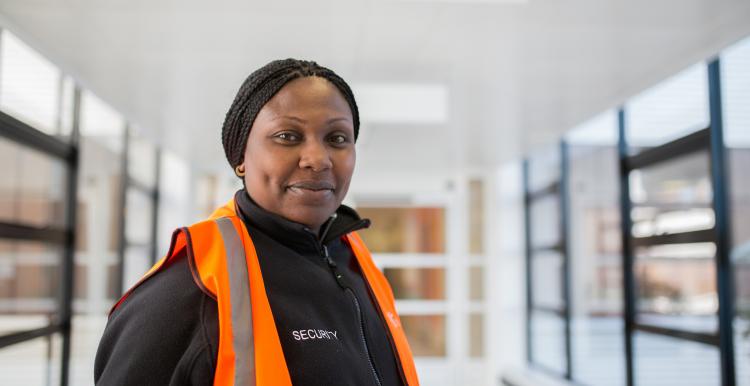Coronavirus is affecting my mental health – what can I do?

Emergency support
If you or someone you know is experiencing a mental health crisis please:
- Call you GP or dial 111
- Call The Samaritans for free on 116 123 (UK only) or email, jo@samaritans.org
- Call the Mental Health Crisis Line on 0800 330 8590 (your local Community Mental Health Team in Greenwich)
- Go to your nearest NHS hospital Accident and Emergency (A&E) department. For Greenwich residents, this may be Princess Royal University Hospital or Queen Elizabeth Hospital.
1. Seek accurate information from legitimate sources
Try to only read information about Coronavirus from official sources:
Reading credible sources of information can help you avoid the fear and panic that misinformation may cause, which can fuel anxiety. Having access to good quality information about the virus can help you feel more in control.
2. Try to avoid excessive exposure to media coverage
Constantly monitoring the news and your social media feeds about COVID-19 can intensify feelings of worry and distress. It’s important to find a balance while keeping informed. If you find the news is making you feel stressed, set boundaries for how much news you read, watch or listen to. For example, turn off phone notifications from news apps.
3. Look after yourself
It's normal to feel vulnerable and overwhelmed as we read news about the outbreak. Focus on the things you can control, instead of those you can't. Where possible, maintain your daily routine, and prioritise your wellbeing and mental health.
4. Stay connected and reach out to others
Keeping in touch with your friends and family and talking through your concerns can help ease the stress caused by COVID-19. Check in with people who you know may be worried or live alone. If you are very worried, contact a helpline for emotional support.
5. Talk to your children
It's equally important to help children cope with stress too. Answer their questions and share facts about COVID-19 in a way that children can understand, without causing them alarm.
The World Health Organisation have created advice on how to help children cope with stress during Coronavirus.
6. Don’t make assumptions
It's important not to judge people and avoid jumping to conclusions about who is responsible for the spread of the disease. The virus can affect anyone, regardless of gender, ethnicity, or sex.
7. Stay well while self-isolating
If you are showing symptoms or have the virus, you will be required to self-isolate and stay away from other people. This may seem like a daunting prospect, but keep in mind that this is only temporary.
It is important to create a daily routine that prioritises looking after yourself, such as catching up on sleep.
There are still many ways to stay connected to the people who matter to you, digitally, or on the phone. When staying in touch with friends on social media, try not to share content that sensationalises things. Your friends may be worried too. Only share content from trusted sources.
Remember to also look after your wider health needs, such as having enough prescription medicines available to you.
If you need ideas about how to support your wellbeing, Mind, the mental health charity, have put together practical tips to help you.
Where can you get further mental health support?
Bromley, Lewisham and Greenwich MIND
BLG Mind provide counselling, peer support, employment and benefits support, young mum and dads support and other mental health support services in the Royal Borough of Greenwich.
https://blgmind.org.uk/greenwich-mental-health/
01689 811222
Use the contact form on the MIND website
Greenwich Live Well
This is a free service to Greenwich residents. Through this service, you can get a Live Well coach who can support you to continue improving your mental health. Live Well Coaches can offer up to 6 sessions to support either virtually or face-to-face in a community setting.
https://livewellgreenwich.org.uk/living-well/live-well-every-day/
0800 470 4831
Lewisham, Greenwich and Southwark Samaritans
If you need to speak to someone you can call the Samaritans. They're always open and are there to listen. 116 123 https://www.samaritans.org/branches/lewisham/ jo@samaritans.org (response time 24 hours)
Mental health support for people under 25
Kooth (support for people aged 10 - 18)
The Kooth team are here to provide free, safe and anonymous online support and counselling. The whole team are made up of friendly and experienced individuals who want to help you.
NHS Free Your Mind (support for people aged 18 - 25)
These services, now delivered online, can provide support and help coach you to better mental wellbeing.
https://nhsfreeyourmind.co.uk/
Mental health support for people over 25
NHS Free Your Mind (support for people aged 25+)
Find out how these free south east London services, now delivered online, can help coach you to better mental wellbeing.
https://nhsfreeyourmind.co.uk/
Qwell (support for people aged 18+)
Online emotional wellbeing and mental health support.
Mental Health support if you are pregnant or recently gave birth
Quaggy Development Trust
The Quaggy Development Trust runs community counselling service as well as a perinatal service.
https://www.quaggydevelopmenttrust.org/
020 8465 9785
Use the contact form on the website
Mental Health support for Black, Asian and Minority Ethnic people
Black Minds Matter UK
The aim of Black Minds Matter is to ensure that black people in the UK are able to better access mental health support.
https://www.blackmindsmatteruk.com/
Black Learning Achievement and Mental Health
Formerly a charity set up in 2017, Black Learning Achievement and Mental Health is now a not-for-profit organisation that provides both education and mental health support.
Black Thrive
Based in Lambeth, South London, Black Thrive is an organisation dedicated to combating the “inequality and injustices experienced by black people in mental health services”.
The Black, African and Asian Therapy Network
The Black, African and Asian Therapy Network offers a range of therapists in the UK of black, African, South Asian and Caribbean descent.
Mind: Young Black Men
In 2019, mental health charity Mind launched a programme through which it works specifically with young black men aged between 11 and 30 years old.
https://www.mind.org.uk/about-us/our-policy-work/equality-and-human-rights/young-black-men/
Rethink Mental Illness: Resources for Black, Asian and Minority Ethnic (BAME) mental health
If you are from a Black, Asian or Minority Ethnic background, you may face specific issues relating to your mental health. This section gives information on your options for support and treatment and to help resolve any specific issues.

